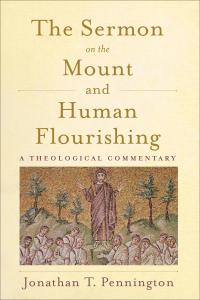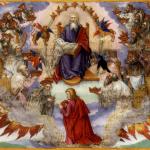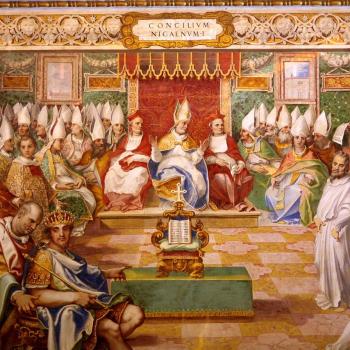 On Episode 28 of Word Matters, Jonathan Pennington joined us to discuss Jesus’s command to “be perfect as your heavenly Father is perfect” (Matt. 5:48). What does it mean to “be perfect,” especially in light of the fact that we know no one is or can be perfect in a sinful world?
On Episode 28 of Word Matters, Jonathan Pennington joined us to discuss Jesus’s command to “be perfect as your heavenly Father is perfect” (Matt. 5:48). What does it mean to “be perfect,” especially in light of the fact that we know no one is or can be perfect in a sinful world?
Pennington helpfully explained that “perfection” as it’s often translated in Matthew’s Gospel doesn’t mean sinlessness. When considered against its Old Testament roots, the word used here (τελειος , “teleios“) means something more like “wholeness,” “peace,” or “flourishing.” Further, in the Hellenistic tradition that had already infiltrated the world of the Bible’s writing, this term is related to a “wisely learned person” who is virtuous in his being, and not inconsistent in his inward vs. outward life. Jesus isn’t calling us to sinless perfection here (though he never allows us an excuse to sin), but is rather calling us to be whole like his Father. Indeed, Pennington translates Matthew 5:48 in his commentary—The Sermon on the Mount and Human Flourishing—this way:
Therefore, you shall be whole as you heavenly Father is whole. (203)
But what does it mean to be whole in the sense that Jesus is getting at? As Pennington explained on the podcast, this term tells us that we can be blameless without being faultless. Because God knows we can’t live sinlessly (though that’d be ideal), he can still call us to a consistent and growing dedication. In other words, God is calling each of his people to be a type of person. “He wants a wholeness of heart, not a perfection of behavior.” Or as he says in his book,
…the Christian’s life must be marked by a way of being in the world that accords with God’s nature, will, and coming kingdom. The requirement of wholeness or heart-affections-behavior righteousness in 5:48, in imitation of God the Father, is a great summary of the gracious invitation of the gospel… (206)
Pennington (rightly) argues that this idea of wholeness (teleios) is “the summary call of the ethics of the kingdom” (203). The beginning of the Sermon gives examples of what wholeness is (notice how they represent the ethics of God’s kingdom and therefore the character of God himself), and then the rest of the Sermon lays out instructions for what this wholeness looks like as it is lived out in the now-and-not-yet.
We should not white-knuckle good deeds, but rather rest in the righteousness of Christ as the Spirit works through us to make us into his image.
Check out some other confusing passages we’ve tackled:
- Was Jesus created?
- What does the number 666 mean?
- Was Adam an historical person?
- Did Jesus call a woman a dog?
- What is the Abomination of Desolation?
—
Stay in touch! Email me at ChurchGrammar@gmail.com or connect with me on Academia.edu.
















